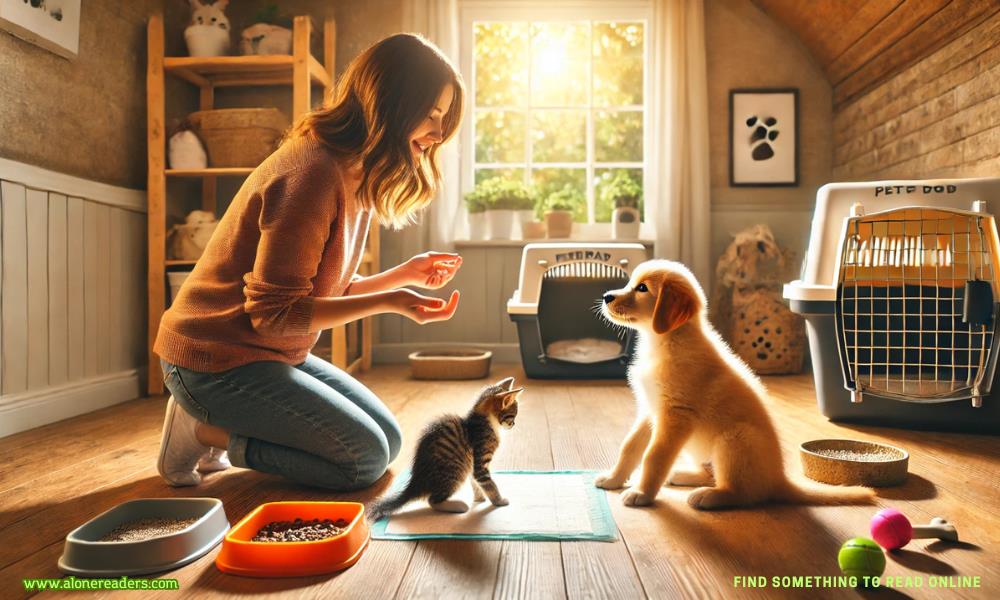Page 68 of The Roads We Follow
“That’s correct,” I say, trying to shove the clickbait headlines of every viral video of me kissing Tav from my mind. Here we go again. “I’m willing to use my own name as long as you think it will create the diversion we need to undermine the tell-all.”
“I absolutely think it will.” I hear the click of computer keys in the background. “By cross-referencing a few publishing data sites online, my best guess is the tell-all is slotted to release within the first quarter of next year. I’m going to shoot straight with you, the turnaround time on your first draft will be tight. If you can send me a paragraph or two on your basic premise, and whatever supportingdocuments or extras you might be willing to include—old letters, pictures, etc.—then I’ll work up a proposal over the weekend and set a meeting with the board on Monday for emergency approval. If they sign off like I think they will, I could have a contract to you by early next week. But, Raegan.” His pause has me pressing the phone even closer to my ear. “I’ll need at least the first fifty pages in-house by the end of the month and likely the finished first draft no later than the end of October. We’ll have to move on this exceedingly fast to get it all the way through production in time for publication. Are you positive you have the capacity to take on a project of this caliber?”
My eyes widen as the weight of such a task sinks in. Three months to write a book about my family that they know nothing about. I try to push the guilt down to embrace Adele’s words at face value. I’ll tell them all after the concert. And then I think of how much writing I’ll need to do over the course of the next week and just how little I know about structuring a book like this. And how the minute I get off this phone I’ll need to search for the closest Apple Store and buy myself a new laptop. “I’m positive.”
“Okay,” Chips says, a whisper of disbelief still in his tone. I recognize the reaction, seeing as it’s looping through my own brain at this very moment. “Then I suppose I better clear my schedule and start on that proposal.”
“Thank you,” I say, hoping he can’t hear the way my voice trembles. “I’ll do my best to get you a basic outline by the end of the day.”
“Don’t hesitate to text if you have any questions—day or night.” His excitement is unmistakable, and I smile to think of what a book deal like this might mean for a young editor as deserving as Chip Stanton.
“Will do,” I confirm.
“And Raegan, if we can pull this off and it’s even a fraction of the success I think it can be, then I have every hope those readers will follow you anywhere you want to take them, even if that road leads to some of the best fiction I’ve read in years.”
Tears flood my eyes as I work to swallow the thickness in my throat. This certainly isn’t the road less traveled I’d imagined for myself as I hid in my mama’s house, writing as a means of escape. Or the road I hoped would keep me anonymous to critics who will only see me as a product of nepotism. But perhaps the road less traveled wasn’t the road meant for me. Perhaps this was always the path I was meant to take.
The road that follows a journey my mama paved for me decades before I was born.
A road that led me right here to this very moment.
18
Micah
Several years ago, I was “volunteered” by a member of the school board to drive a group of theater kids in a fifteen-passenger van for five hours across the state after the recruited parent came down with the stomach flu. I’d prepared myself for random outbursts in song and the occasional misquote of an epic movie line. But what I hadn’t prepared for was the depth of drama I’d be dragged through after an argument about the cast ofWickeddivided my passengers. After an extended two-hour freeze-out period, in which there were only hand gestures used, the students had given me no other choice but to pull the van over.
I’m about five minutes away from doing the same thing with the Farrow women.
We’ve been back on the road for three hours, and in that time, Cheyenne has attempted—and failed—to engage her mother in a productive conversation about school while Luella has been a raresighting for the majority of the trip. Her avoidance of conflict has certainly passed its way down her family line.
I glance over at Raegan sitting in the jump seat next to me, typing away on the shiny new laptop we stopped to pick up after what appeared to be a positive phone call with Chip, the editor. Due to our mixed company, she couldn’t provide me with much information, which in and of itself only furthers my point. When was the last time this family talked through anything of significance with one another? More importantly, do they even know how?
To be fair, my perception of my own family’s openness wasn’t exactly accurate. The mere fact I’m driving through the Midwest on a quest for my unknown father is proof enough the Davenports were missing a few vital conversational tools in their toolbox, too.
The image of Tav Zuckerman’s full name flashes through my mind again, and I clench my molars until my jaw aches and stare out at the nothingness that is the US-40 detour we’re on due to the brutal construction traffic on I-70. It will take another four hours to get from here to the Denver airport for Cheyenne’s rebooked flight tonight, but with any luck, I’ll be able to get us back on Luella’s original course by tomorrow afternoon.
I tug at my damp shirt collar and tap the AC arrow lower as I direct my thoughts to the conversation I’ll need to have with Luella soon. I calculate the risk/reward ratio of involving yet another person in the details of a sordid past I only recently accepted as my own. I might hold some skills in the art of mediating hard conversations, but it’s rare I have to mediate myself.
Raegan stretches out her hand toward the air vents. “Did you turn the heater on?”
My eyes snap to hers and then to the vents, which are indeed blowing out warm air. I smash the down AC arrow again and again to no avail.No, no... this cannot be happening.
“Whoa. Chill out, Micah,” Raegan reprimands. “It probably just needs a break. It’s been running nonstop since we started out today.”
Butchill outis a luxury I no longer have access to, which is perhapsthe only reason I’ve been able to manage on three hours of broken sleep as well as I have.It’s hot.I check the interior thermostat on the wall behind Raegan’s head, and sure enough, the perfect sixty-nine-degree temperature I’ve had it set to all week despite multiple protests from my frostbitten passengers has crept to a brutal seventy-nine. Make that eighty.
A slow-rising panic begins to congeal my insides. I’ve barely begun a diagnostic check of each gauge on the dash when I’m interrupted by Raegan announcing, “We’ll just crack the windows. Don’t worry, Kansas isn’t humid like Arkansas or Oklahoma. It’s dry heat.” But as soon as she follows through with her mastermind plan, a wind tunnel of arid air fills the cab. She sticks her hand into the fiery furnace. “On second thought, it’s pretty warm out.”
“Please,” I say with what feels like the last shred of patience I’ll ever possess. “Close your window.”
Her eyebrows pinch together, and she looks ready to unleash an arsenal of snark when my attention pulls to my side mirror where a giant white cloud has engulfed the back of the bus. I bite back a choice word or five and bang my palm against the steering wheel. Raegan unbuckles in order to lean over my shoulder long enough to see the nightmare unfolding behind us in real time.
“That’s dust, right?” she asks feebly.
“Not unless dust comes out of a radiator.” My eyes dart from the billowing steam to the water temperature gauge. Sure enough, it’s maxed out. We’re overheating in the middle of Nowhere Kansas. Perfect. “Crank the heater as high as it goes.”
“What?” Raegan’s neck whips back in my direction. “But you just told me to roll—”
- The Sheik's Embrace by Elizabeth Lennox
- Sofa King Cute by Alexa Riley
- Family Bonds- Garrett & Justine by Natalie Ann
- Stolen Dreams by Natasha Madison
- Vendetta Crown by Brook Wilder
- Vendetta Vows by Brook Wilder
- Born into Darkness by Sonja Grey
- His Virgin Wife by Sam Crescent
- The Princess and the Pack by Fallon English
- Revival by A.M. Wilson
- Reclaimed by A.M. Wilson
- Atonement by Evelyn Montgomery
- Some Like It Royal by Heather Long
- Protected By Saint by Cassi Hart
- Getting Lucky in London by Darah Lace
- A Man of Power by S.E. Rose







